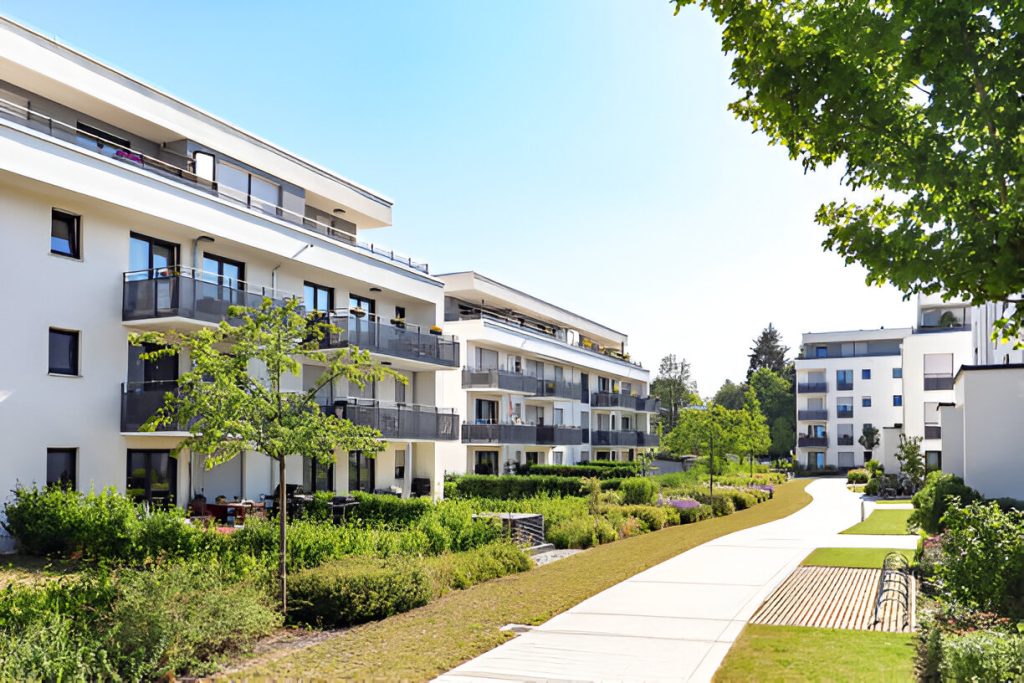
Are you looking to rent a property in Spain? Whether you’re seeking a cozy apartment by the beach, a charming villa in the countryside, or a modern city flat, Spain offers diverse options to suit every taste and budget. This guide covers everything you need to know about renting a property in Spain, including where to look, what to consider, and tips to make the process smoother.
Different Types of Rental Properties in Spain
When it comes to renting a property in Spain, you’ve got plenty of options. Whether you’re seeking a cozy apartment in the city or a spacious villa by the beach, Spain offers a variety of properties to fit your lifestyle and budget. Let’s explore the different types of rental properties available, so you can find the perfect place to call home.
Apartments
Apartments are the most common type of rental property in Spain. You’ll find everything from studio flats to multi-bedroom units. If you’re looking for convenience, renting an apartment in the city center might be your best bet. You’ll be close to shops, restaurants, and public transport. Think about it—waking up and stepping out your door to explore the vibrant streets of Barcelona or Madrid. Isn’t that tempting? On the flip side, if you prefer a quieter lifestyle, many neighborhoods offer more spacious apartments with a more relaxed vibe.
Villas
If you’re dreaming of a home with a little more space, villas might be calling your name. These standalone properties often come with gardens and sometimes even pools. They’re a popular choice in coastal areas like Costa del Sol or Costa Brava, where you can enjoy the sun and sea. Imagine sipping your morning coffee on your patio while listening to the waves. Renting a villa can feel like a mini-vacation every day! Just keep in mind that villas can vary significantly in price depending on the location and amenities.
Townhouses
Townhouses offer a unique blend of apartment and villa living. These properties typically feature multiple floors and often come with outdoor space. They can be found in both urban settings and suburban neighborhoods. Townhouses provide a bit more privacy compared to apartments while still being part of a community. They’re perfect for families or anyone looking for a little extra room. Picture yourself hosting a barbecue in your backyard, with friends and family enjoying the day together.
Studios
Studios are ideal for those who prefer a simpler living arrangement. These compact spaces usually combine the living area, bedroom, and kitchen into one open layout. If you’re a student or a young professional, a studio can be a great option. It’s all about efficiency and making the most out of your space. Plus, they often come at a lower rental price, allowing you to save some cash for exploring all the great things Spain has to offer.
Shared Accommodations
If you’re looking to save money or meet new people, consider renting a room in a shared accommodation. This arrangement allows you to live with others while having your own private space. It’s a great way to make friends, especially if you’re new to the country. Think of it as having built-in companions to share meals and adventures with. You can find shared flats in various cities, making it a popular choice for students and young professionals.
Holiday Rentals
For those who want a taste of the Spanish lifestyle without a long-term commitment, holiday rentals are an excellent choice. These properties are typically fully furnished and can be rented for short periods, ranging from a few days to several weeks. Whether you want to soak up the sun in a beachfront apartment or enjoy the historic charm of a villa in the countryside, holiday rentals allow you to experience different parts of Spain. Just imagine spending your holidays in a beautiful setting, creating unforgettable memories with your loved ones.
How Can You Find Rentals in Spain?
Looking for a rental in Spain? It can be a bit overwhelming with so many options available, but don’t worry! I’m here to guide you through the process. Whether you’re moving for work, studies, or just a change of scenery, there are plenty of ways to find the perfect place. Let’s break down some of the best methods to help you get started.

Online Property Portals
One of the easiest ways to find rentals in Spain is through online property portals. Websites like Idealista, Fotocasa, and Habitaclia have extensive listings of available properties. These platforms allow you to filter searches based on location, price, size, and property type. It’s like having a virtual real estate agent right at your fingertips! You can browse listings at your leisure, view photos, and even check out neighborhood features. This way, you can narrow down your options and focus on what truly fits your needs.
Local Real Estate Agencies
Sometimes, a personal touch can make all the difference. Local real estate agencies can provide you with insider knowledge and help you navigate the rental market. They often have exclusive listings that you won’t find online. Plus, agents can offer valuable advice on neighborhoods, local amenities, and the rental process. If you’re unsure where to start, visiting an agency in the area you’re interested in can help you find exactly what you’re looking for.
Social Media and Community Groups
Don’t underestimate the power of social media when searching for rentals in Spain. Many communities have Facebook groups where landlords post available properties. Joining these groups can give you access to listings directly from property owners, often without the hefty fees associated with agencies. Plus, you might find helpful tips and recommendations from locals who know the area well. It’s like having a local friend share their insights and connect you with opportunities!
Networking
If you have friends or family in Spain, reach out to them for help. Networking can be a fantastic way to find rentals that aren’t widely advertised. Sometimes, word of mouth leads you to hidden gems. You never know, a friend might know someone looking to rent out their place. Don’t be shy about asking around; you could be surprised at how many connections you have that can help.
Local Newspapers and Bulletin Boards
While online searches are popular, don’t forget about traditional methods. Check local newspapers for rental ads, especially in smaller towns. Community bulletin boards in cafes, grocery stores, or community centers often have postings for available rentals as well. It’s a good way to find properties that might not be listed online. Think of it as a treasure hunt; you never know what you might find!
Rental Apps
In today’s tech-savvy world, rental apps can simplify your search for a property in Spain. Apps like Badi, Spotahome, and Uniplaces are designed to help you find rentals quickly. They often feature user-friendly interfaces, allowing you to browse listings on the go. With real-time updates and notifications, you’ll be among the first to see new rentals as they hit the market. This is particularly helpful in competitive areas where properties can get snapped up fast.
What Are the Costs Associated with Rent a Property in Spain?
When considering renting a property in Spain, it’s essential to understand the various costs involved. It’s not just the monthly rent you’ll need to budget for; there are additional expenses that can catch newcomers off guard. Let’s break down the key costs you should keep in mind to ensure you’re fully prepared for your rental experience.
Monthly Rent
The most obvious cost is the monthly rent itself. Rental prices can vary significantly depending on the location, type of property, and its size. For example, a one-bedroom apartment in a bustling city like Barcelona will typically cost more than a similar unit in a smaller town. It’s important to research the average rents in your desired area to set realistic expectations. Be sure to check various listings to get a sense of what you can afford.
Security Deposit
In Spain, landlords usually require a security deposit before you move in. This deposit typically equals one or two months’ rent and serves as a safeguard for the landlord in case of damages or unpaid rent. Once your lease ends, you should get your deposit back, provided there are no issues with the property. Make sure to document the property’s condition when you move in, as this can help you avoid disputes when it’s time to get your deposit back.
Utility Bills
Utility bills, including water, electricity, gas, and internet, are additional costs you’ll need to factor in. These bills can vary based on usage and the size of the property. In many cases, tenants are responsible for setting up and paying these services. On average, you might expect to pay around €100-€200 per month for utilities, but this can fluctuate depending on your lifestyle and location. Ask your landlord for estimates on utility costs to budget accordingly.
Community Fees
If you’re renting an apartment in a building with shared amenities, you may also need to pay community fees (gastos de comunidad). These fees cover maintenance costs for shared areas like gardens, pools, and hallways. The amount can vary based on the property’s facilities and size, but it’s generally between €50 and €150 per month. Make sure to clarify with your landlord whether community fees are included in your rent or paid separately.
Rental Agency Fees
If you decide to use a rental agency to help you find a property, be prepared for agency fees. These fees typically amount to one month’s rent plus VAT (Value Added Tax). While this cost can feel steep, agencies often streamline the rental process and provide valuable services, such as negotiations and paperwork assistance. Just be sure to understand any fees involved before signing any agreements.
Furnishing and Initial Setup Costs
If you’re moving into an unfurnished property, you’ll need to budget for furniture and essentials. Depending on your needs, furnishing an apartment can range from a few hundred to several thousand euros. Consider purchasing second-hand furniture or checking out local stores for budget-friendly options. If you’re renting a furnished property, confirm what items are included to avoid any unexpected purchases.
Renters Insurance
While not mandatory, renters insurance is worth considering for added peace of mind. This insurance covers your personal belongings in case of theft or damage. Policies can vary, but you might find coverage for around €100 a year. It’s a small price to pay to protect your belongings while living in Spain.
What Legal Considerations Should You Be Aware of When Renting in Spain?
Renting a property in Spain can be an exciting adventure, but it’s essential to be aware of the legal aspects involved. Understanding your rights and responsibilities as a tenant can help you avoid potential issues down the line. Let’s explore some of the key legal considerations to keep in mind when renting in Spain.

Rental Contracts
When renting a property, the first thing you’ll encounter is the rental contract (contrato de arrendamiento). This document outlines the terms of your rental agreement, including the duration, monthly rent, and any specific conditions. In Spain, rental contracts are typically for a minimum of one year, but they can be longer, depending on your agreement with the landlord. Make sure to read the contract carefully and clarify any unclear terms before signing. It’s important to know your rights and obligations regarding the property.
Rights and Responsibilities of Tenants
As a tenant, you have specific rights protected by Spanish law. For example, you have the right to a habitable living space, meaning the property must be safe and meet basic standards of living. You also have the right to privacy, which means the landlord cannot enter the property without your permission, except in emergencies. Familiarize yourself with these rights, as they help you understand what to expect during your rental period.
On the flip side, tenants also have responsibilities. This includes paying rent on time, keeping the property in good condition, and informing the landlord of any repairs needed. If you fail to meet these obligations, the landlord may have grounds for eviction.
Security Deposits
In Spain, landlords often require a security deposit, typically equal to one or two months’ rent. By law, landlords must return the deposit within a month of the lease ending, unless there are legitimate reasons for withholding it, such as unpaid rent or damage to the property. It’s wise to document the property’s condition when you move in and when you move out to avoid disputes over the deposit.
Termination of Lease
Understanding the rules around terminating your lease is crucial. If you or your landlord wants to end the rental agreement, you must follow the terms laid out in your contract. Generally, tenants are required to give at least 30 days’ notice before moving out. If you leave without notice, you may risk losing your security deposit. It’s a good idea to communicate openly with your landlord to avoid any misunderstandings.
Rent Increases
Spanish law regulates rent increases, particularly for long-term rentals. Generally, the increase cannot exceed the annual CPI (Consumer Price Index), which is determined by the government. Be aware of the terms regarding rent increases in your rental contract. If you’re unsure, seek clarification from your landlord or a legal expert.
Local Regulations
Different regions in Spain may have specific rental laws and regulations, so it’s essential to familiarize yourself with local rules. For instance, some cities have restrictions on short-term rentals or specific requirements for registering rental properties. Check with your local government or a real estate expert to understand any regulations that might affect your rental experience.
Tenant Associations
Consider joining a tenant association (asociación de inquilinos) in your area. These organizations can provide valuable resources and support, helping you stay informed about your rights and any changes in rental laws. They often offer guidance on legal issues, mediation, and even representation in disputes with landlords.
FAQs
Here are some frequently asked questions (FAQs) about renting a property in Spain.
What is the average rental price in Spain?
The average rental price varies significantly based on location. Major cities like Madrid and Barcelona generally have higher rents, while smaller towns offer more affordable options. For example, apartments for rent in Malaga City can start at around €700.
Do I need to pay a deposit when renting a property in Spain?
Yes, it’s common to pay a security deposit, typically equivalent to one or two months’ rent. This deposit is held to cover any damages or unpaid rent during your stay.
What are short-term rentals in Spain?
Short-term rentals are properties available for temporary stays, often fully furnished and ideal for vacationers. These can be found on platforms like Airbnb and typically range
Conclusion
Renting a property in Spain can be an exciting journey filled with opportunities to experience the vibrant culture and stunning landscapes. By knowing what types of properties are available, where to find them, the costs involved, and legal considerations, you can make informed decisions. Whether you’re looking for short-term rentals in Spain or a long-term apartment, this guide has provided essential insights to help you along the way.



